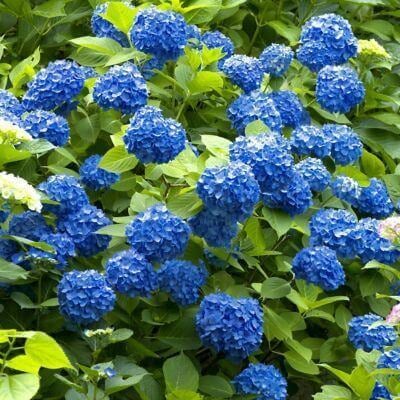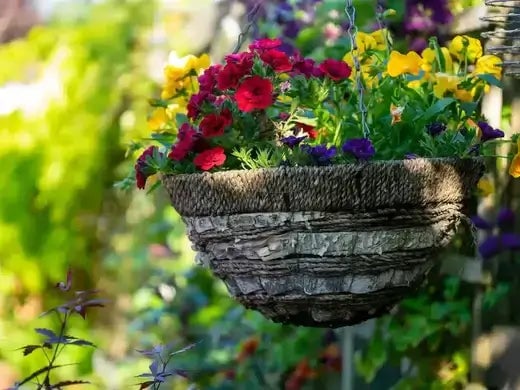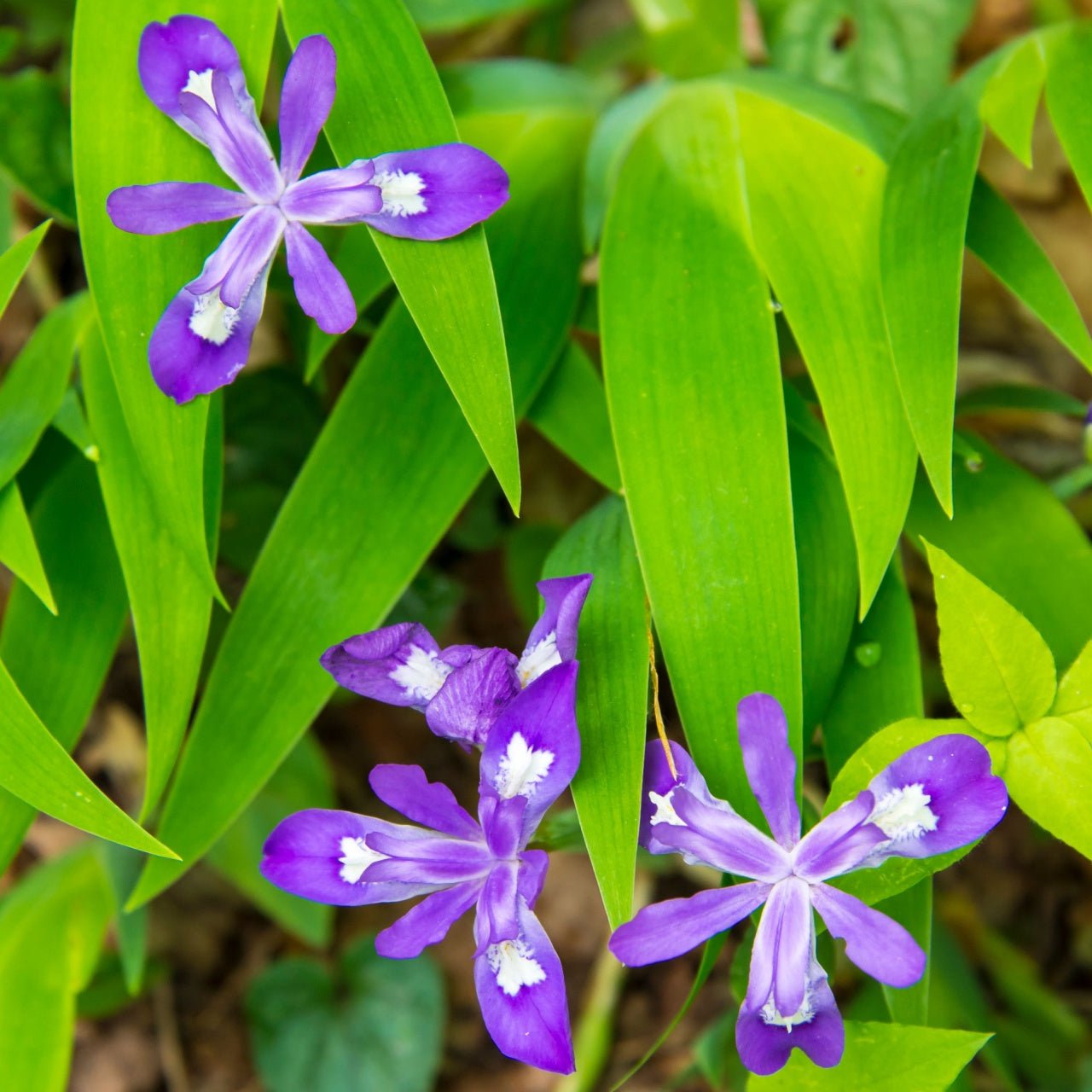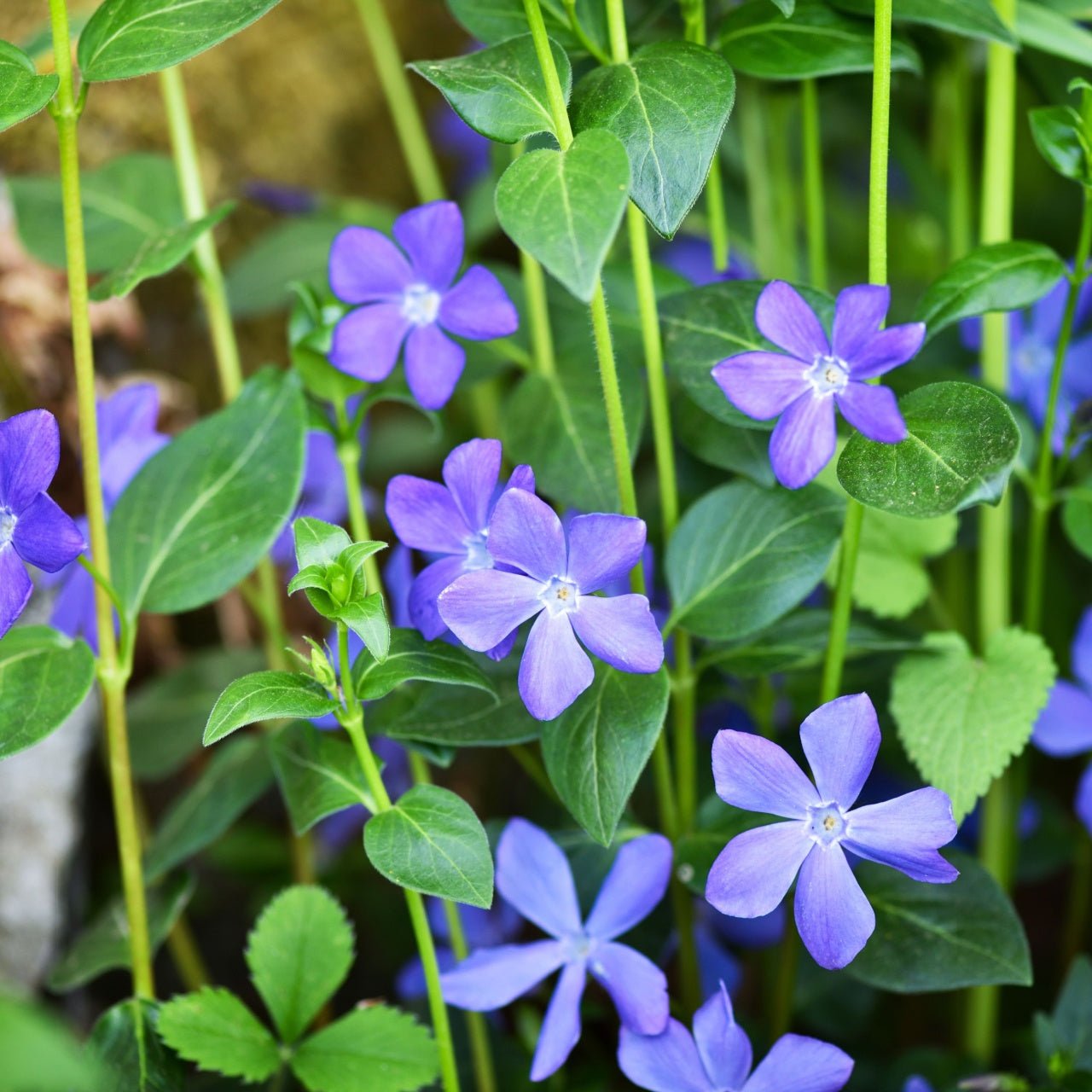Why Grow Perennials Flowers?
Perennials are plants that will return year after year. Having to buy new annuals (plants that only live one year) each year can be costly. By using perennials in hanging baskets, you won’t need to replace them every spring.
How to Plant Perennial Flowers in Hanging Baskets:
- Decide on what size hanging baskets you want to use
- Buy small perennial plants for hanging baskets
- Decide how many perennials you want to put in each basket, we recommend one or two, but you can do more
- Place a liner made from natural materials in the basket
- Fill half of the hanging basket with soil
- Take the perennial plant out of its store container and place it in the soil of a hanging basket
- Fill in the remaining space with soil
- Water plants thoroughly
- Hang the basket in the desired location
Picking Basket Perennial Plants
The best perennial plants for hanging baskets are the ones that you enjoy!
There are many options to choose from, but short plants are ideal. This means picking plants that are no more than 12 inches high. All of the plants on this list are short and suited for containers. Plus, the majority of the plants here are native and pollinator-friendly—what's not to love?
13 Best Perennial Flowers for Hanging Baskets:
Dwarf Crested Iris
The Dwarf Crested iris is one of the best perennial plants for hanging baskets because its flowers are unique, and your family and friends will want to take a closer look to see their intricate details.
Zones: 3 to 9
Sun exposure: Full sun to part shade
Mature height: up to 10 inches
Water: Average
Best for woodlands, borders, and containers
Painted Trillium
Painted trillium makes a good hanging basket perennial because it's small enough to fit anywhere. Its flowers are also beautiful and detailed. Painted trillium is low-maintenance and easy to grow.
Sun exposure: Full shade
Zones: 3 to 9
Mature height: up to 8 inches
Water: Average
Best for woodland gardens, alpine gardens, containers, and shaded borders
Bird’s Foot Violet
Bird's foot violet is one of the best perennials for hanging baskets because it produces many blossoms annually. It is a resilient plant that can withstand weather changes and is happy with occasional shade.
Zones: 4 to 8
Mature height: up to 8 inches
Sun exposure: Full sun or part shade
Mature height: up to 6 inches
Water: average
Best for woodland edges, in front of borders and containers
Purple Violet
Purple violet is a great perennial for hanging baskets because it is small and easy to grow. It blooms from late spring until fall and shows off vibrant shades of purple. With its unique foliage, you may never need another hanging basket plant again.
Zones: 3 to 9
Sun exposure: Full sun or part shade
Mature height: up to 8 inches
Water: average
Best for woodland gardens, alpine gardens, containers, and borders
White Violets
White violets are some of the best perennials for hanging baskets because their green leaves make the white blossoms pop. They look especially nice when planted together with other violets, and they are super easy to maintain!
Zones: 3 to 8
Sun exposure: Full sun or part shade
Mature height: up to 8 inches
Water: Average
Best for woodland gardens, moon gardens, alpine gardens, containers, and borders
Wild Ginger
Wild ginger is an ideal container plant because it is low maintenance and adds green to any arrangement. It can also grow with other flowers to add interest to a hanging basket.
Sun exposure: Full shade
Zones: 4 to 8
Mature height: up to 12 inches
Water: average to wet
Best for woodlands, shaded gardens, under trees or shrubs, and in containers
European Ginger
The European ginger is another of the best perennials for hanging baskets because its foliage will steal the show. In addition to its mellow ginger scent, this plant can fill any container with lush foliage.
Sun exposure: part shade to full shade
Zones: 4 to 8
Mature height: up to 8 inches
Water: medium to wet
Best for woodlands, shaded gardens, under trees or shrubs, and in containers
Virginia Spring Beauty
The delicate flowers of the Virginia spring beauty make this another plant you want to see up close. It is obvious why this is one of the best perennials for hanging baskets; the flowers are almost too beautiful to be real!
Sun exposure: Full sun to part shade
Zones: 4 to 9
Mature height: up to 8 inches
Water: Average
Best for woodland gardens, alpine gardens, borders, and containers
Twinleaf
The twinleaf is another hanging basket perennial that is almost too good to be true. Its cupped flowers sit just above its dark green foliage. With a short but full growth habit, the Twinleaf would look good in any hanging basket.
Sun exposure: Full shade
Zones: 5 to 7
Mature height: up to 8 inches
Water: Average to moist
Best for woodland gardens, front of borders, edges, and containers
Hepatica
The hepatica looks similar to the twinleaf but is even shorter. Because of its many sparkly white blossoms, it is one of the best perennials for hanging baskets.
Sun exposure: Part sun to part shade
Zones: 4 to 8
Mature height: up to 6 inches
Water: Average
Best for woodlands, edges, front of borders, and containers
Vinca Minor
While vinca minor is often used as a groundcover, it looks wonderful in containers and hanging baskets. Its purple flowers will fill in and trail from any hanging basket as long as it has plenty of sun.
Sun exposure: Full sun
Zones: 4 to 9
Mature height: up to 6 inches
Water: Average
Best for front of borders, containers, and as a groundcover
Creeping Buttercup
Creeping buttercup is often grown on the ground, but why not bring it up a notch? These delicate flowers transfix children for a reason - they are beautiful and memorable. Why let kids have all the when you can enjoy them up close in a hanging basket?
Zones: 3 to 9
Sun exposure: Full sun or part shade
Mature height: up to 10 inches
Water: Average
Best for woodlands, borders, or as a groundcover
Bluets
The overlooked bluets are among the best perennials for hanging baskets because they have such delicate flowers. They pair nicely with violets, buttercups, or the dwarf crested iris.
Sun exposure: Part sun to part shade
Zones: 3 to 8
Mature height: up to 6 inches
Water: Dry to average
Best for from of borders, woodland gardens, edges, and containers
How to Care for Your Hanging Plants in the Fall:
Now that you have some ideas of what to plant, here is a short care guide for hanging basket perennials. Because perennials will return the following year, they will require maintenance and care if planted in a hanging basket or container.
If you have other containers that you plant perennials in, treat the plant in the hanging basket the same as those. If not, we suggest you consider doing the following:
- Take hanging baskets down
- Dig a half circle in the ground
- Remove the plant together with the natural materials liner
- Place the plant with a liner into the hole so it is levelled with the ground
- In spring, pick the plant up and replace the liner before reinserting it into the hanging basket
- The plant may need to be divided or thinned if it becomes too large for the hanging basket
Or you can try this method:
- Take hanging baskets down
- Place baskets in the greenhouse, shed, or basement
- Make sure you water the plants occasionally throughout winter
- In spring, take plants outside again and rehang
DIY Hanging Basket for Perennials: A Step-by-Step Guide
A porch or balcony becomes a cheerful and inviting space when you fill its space with a hanging basket overflowing with vibrant perennial plants. Creating your DIY hanging basket allows you to choose particular plants and container styles that match your personal preferences and garden style. The initial appearance of the idea may seem intimidating, but following the steps reveals its simplicity. This guide will show you how to choose materials and prepare the container while selecting appropriate perennials and planting them, followed by maintenance instructions to ensure your creation flourishes throughout the season.
1. Selecting the Right Basket and Liner
A sturdy and sufficiently large hanging basket is your project's foundation to accommodate perennial root systems adequately. Wire baskets remain a popular option because they provide superior airflow and drainage. The arrangement becomes more visually pleasing because you can plant around both the sides and the top. Whether you choose plastic or wood baskets, your selection should include sufficient drainage holes to avoid root rot.
A basket liner is essential to keep soil intact and minimize water drainage. Coco liners, also known as coir liners, attract gardeners due to their natural composition, biodegradable nature, and breathable features. Moss liners provide a traditional rustic style while functioning as an excellent choice. These materials maintain moisture levels and manage water drainage to support healthy perennial growth.
2. Gathering Your Planting Essentials
Start your planting project by collecting all needed materials for an efficient workflow. Select a container gardening potting mix that contains minerals like perlite or vermiculite for more suitable drainage and aeration for optimum plant growth. Hanging basket mixes are superior because they typically include ingredients that help maintain moisture levels. You can mix slow-release fertilizer or organic compost into the potting mix for a long-lasting nutrient source for your perennials.
The display method for your basket determines whether you should use hanging chains or a hook attachment. Your hanging hardware needs sufficient strength to support the weight of a wholly watered basket, while heavy-duty chains or hooks remain recommended options. Then, collect garden gloves, a hand trowel, and other gardening tools to set up and organize the plants.
3. Choosing the Best Perennials
The satisfaction of growing perennial hanging baskets comes from the understanding that multiple plants will regenerate annually when given appropriate maintenance. Hardy geraniums, fuchsias, and select begonia species provide excellent perennial choices for hanging baskets that can survive winter in mild climates. The cascading foliage from ivy and trailing perennials such as creeping jenny or vinca vine creates a lush, overflowing appearance while softening the basket edges.
When selecting your perennial plants, consider the level of sunlight exposure your basket location will receive. Some plants flourish under full sun exposure, whereas others require less direct sunlight in partial shade. Different leaf shapes and plant heights create visual interest and fully utilize every layer in the basket. Focus on the flowering periods and foliage characteristics alongside flower colors to balance form and color.
4. Planting Your Basket
You can begin the assembly process after gathering your basket, liner, potting mix, and perennial plants. Add a potting mix layer to the lined basket base to assemble your basket. Position plants through the sides of a wire basket to achieve a more dramatic visual display. Make small holes in the liner, then carefully place the root ball inside before packing the potting mix around it to stabilize the plant. Add soil layers and plant new plants while reaching the basket's top edge.
Place your central focal plants in the center of the basket top while surrounding them with draping vines or trailing flowers along the edges. The container should have enough space because perennials require sufficient room to develop healthy root systems. After confirming that your arrangement looks good, fill the remaining empty spaces with potting mix, press it down softly, and water it well.
5. Proper Hanging and Placement
Secure the chains or hooks properly before lifting your basket. Check for balance: An unevenly weighted basket might tilt if one side bears more weight. Reposition plants or adjust chain attachments to maintain even weight distribution across the basket. Evaluate the sunlight requirements and how easily you can access the spot to select a hanging location for your basket. The location of your hanging basket should provide proper light exposure to your perennials while maintaining easy access to watering and care.
6. Ongoing Care and Maintenance
Long-term investments require proper care to sustain perennials' growth. Hanging baskets require more frequent watering because they lose moisture faster than plants in the ground. Test the soil moisture by touching the topsoil and water thoroughly until water passes through the liner if it feels dry. Extreme heat requires you to water your plants once or twice daily.
Use fertilizer on your basket monthly or follow the specific instructions provided in the fertilizer package. To simplify maintenance, start with a slow-release fertilizer during planting and add liquid feeds as needed. Remove faded flowers to stimulate new blooms and cut back loose stems to keep a tidy appearance. Your climate during winter will determine whether you need to relocate the basket indoors or find a protected area to safeguard delicate perennials.
7. Rejuvenating and Replanting
Eventually, your hanging basket perennials will exceed their container space or consume all nutrients from the soil. Rootbound plants require regular attention by being removed from their pots and replaced with soil every few years. Crowded perennials can be divided and repotted into the basket or given to friends. Maintaining your hanging basket properly and periodically replanting will ensure it stays beautiful and your perennials keep growing well.
Designing your DIY hanging basket for perennial plants produces lasting outdoor beauty and a gratifying experience. A little planning, appropriate materials, and steady maintenance will let you experience a colorful and textured cascade in your outdoor space throughout the seasons. Your personal touch in designing and maintaining your hanging basket brings deep fulfillment because it blossoms into a stunning yearly display.
Read more

Are you looking for the perfect greenery to fill a partially shaded spot in your garden? Adding ferns into your environment can create an oasis of lush green beauty, from small fun ferns to large s...

HydrangeaAlthough their blooms have faded, hydrangeas require continuing winter care to ensure blooms during the next growing season. The care you give them now will determine the quality and quant...





